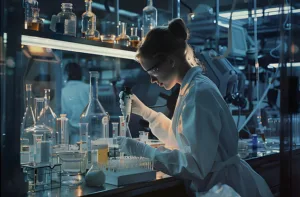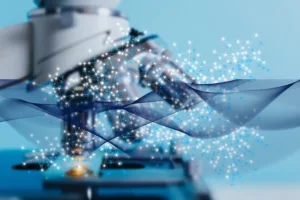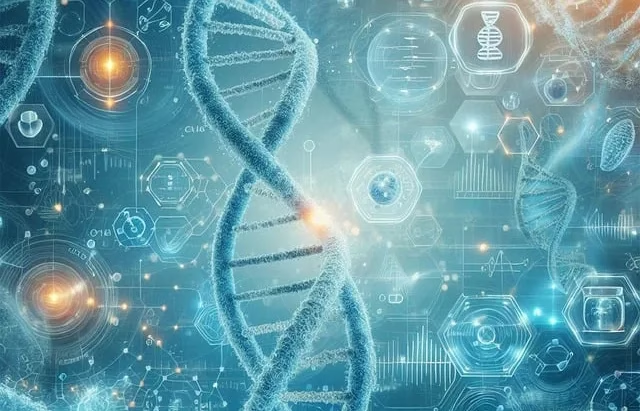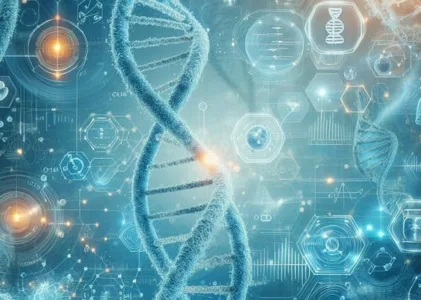In the vast expanse of the natural world, a remarkable treasure trove of biological tools lies waiting to be unlocked. Biotechnology, a discipline that integrates principles from various scientific fields, has emerged as the key to harnessing the power of these natural resources. Through ingenious techniques and tireless research, biotechnologists have embarked on a fascinating journey, unraveling the mysteries of life and harnessing the potential of living organisms for the betterment of humanity.
Unlocking the Secrets of Cells
At the heart of biotechnology lies a profound understanding of the intricate workings of cells, the fundamental units of life. These microscopic factories are nature’s true alchemists, capable of performing intricate biochemical processes with astonishing efficiency. Biotechnologists have learned to harness the genetic blueprint within these cells, manipulating and reprogramming their functions to create remarkable products and services that transcend the boundaries of traditional sciences.
Revolutionizing Medicine
One of the most remarkable applications of biotechnology is in the field of medicine. By delving into the intricacies of genetic coding, scientists have developed groundbreaking therapies that target the root causes of diseases. Recombinant DNA technology has enabled the production of life-saving drugs, such as insulin and human growth hormones, providing relief to countless individuals suffering from debilitating conditions.

Furthermore, the advent of gene editing techniques like CRISPR has opened up a new frontier in the treatment of genetic disorders, offering hope for a future where genetic ailments could be eradicated.
Feeding the World
Beyond medical advancements, biotechnology has also revolutionized the agricultural sector. Through the development of genetically modified crops, scientists have engineered plants that are resistant to pests, diseases, and harsh environmental conditions. These remarkable crops not only boost food production but also reduce the reliance on harmful pesticides, promoting sustainable farming practices. Additionally, biotechnology has facilitated the production of biofuels, offering a renewable and environmentally friendly alternative to fossil fuels.
Diverse Applications of Biotechnology
Biotechnology’s impact extends far beyond these realms, permeating various industries and sectors. In the realm of environmental conservation, biotechnological tools have been employed to develop bioremediation techniques, enabling the cleanup of polluted sites through the use of microorganisms. Moreover, biotechnology has paved the way for the development of innovative materials, such as bioplastics and biodegradable polymers, reducing our reliance on non-renewable resources and mitigating the environmental impact of waste.
Addressing Ethical Concerns
As we delve deeper into the intricate world of biotechnology, it becomes evident that this field is not merely a collection of scientific techniques but a profound understanding of nature’s ingenious design. By harnessing the power of living organisms, biotechnologists have unlocked a toolbox of unprecedented potential, capable of addressing some of the most pressing challenges facing humanity.

However, as with any powerful technology, biotechnology raises ethical and moral concerns that must be addressed with utmost care and responsibility. Issues surrounding biosafety, environmental impact, and the ethical implications of genetic manipulation demand ongoing dialogue and regulation to ensure that this transformative technology is harnessed for the greater good of society.
Convergence of Science and Nature
Amidst the challenges and complexities, one thing remains clear: biotechnology holds the key to a future where the boundaries between science and nature blur, where human ingenuity and the intricate mechanisms of life converge to create solutions that were once deemed impossible. As we continue to explore the depths of this remarkable field, we unlock a world of possibilities, a world where the tools of nature are harnessed to shape a better tomorrow for all.
READ ALSO
Black Holes – Not Space Vaccums
Space Exploration – Unveiling Secrets of The Cosmos
Nanotechnology – Engineering at the Atomic Scale
The Internet of Things – IoT
Bainbridge Head Transplant – Attempting the once-thought-impossible
Frequently Asked Questions about Biotechnology
1. What is biotechnology?
Biotechnology is the application of scientific techniques and principles to modify living organisms or utilize biological systems for practical purposes.

It involves the manipulation of genetic material, cells, and biomolecules to develop products and processes that benefit various industries, including healthcare, agriculture, energy, and environmental conservation.
2. What are some examples of biotechnology applications in healthcare?
Biotechnology has revolutionized the healthcare industry through the development of therapeutic proteins, such as insulin and human growth hormones, for the treatment of various diseases. Additionally, biotechnology has enabled the production of vaccines, antibiotics, and gene therapies. Techniques like genetic engineering and CRISPR have also opened new avenues for personalized medicine and the treatment of genetic disorders.
3. How does biotechnology contribute to sustainable agriculture?
Biotechnology plays a crucial role in sustainable agriculture by developing genetically modified crops that are resistant to pests, diseases, and harsh environmental conditions. These crops require fewer pesticides and can thrive in challenging environments, increasing crop yields and reducing the environmental impact of traditional farming practices. Furthermore, biotechnology contributes to the production of biofertilizers and biopesticides, which are more eco-friendly alternatives to their chemical counterparts.
4. What are the ethical concerns surrounding biotechnology?
While biotechnology offers numerous benefits, it also raises ethical concerns. These include issues related to biosafety, environmental impact, and the ethical implications of genetic manipulation. There are ongoing debates about the potential risks of genetically modified organisms (GMOs) on human health and the environment, as well as concerns regarding the patenting of life forms and the potential for misuse or unintended consequences.
5. How is biotechnology regulated?
Biotechnology is subject to various regulatory frameworks and guidelines to ensure its safe and ethical application. These regulations vary across countries and regions but generally address issues such as biosafety, environmental protection, intellectual property rights, and ethical considerations.

Organizations like the World Health Organization (WHO), the Food and Agriculture Organization (FAO), and national regulatory bodies play crucial roles in establishing and enforcing these regulations.
References:
1. Madigan, M. T., Bender, K. S., Buckley, D. H., Sattley, W. M., & Stahl, D. A. (2018). Brock Biology of Microorganisms (15th ed.). Pearson.
2. Primrose, S. B., & Twyman, R. M. (2013). Principles of Gene Manipulation and Genomics (8th ed.). Wiley-Blackwell.
3. Thieman, W. J., & Palladino, M. A. (2019). Introduction to Biotechnology (4th ed.). Pearson.
4. National Institutes of Health. (2022). Biotechnology and Bioengineering. Retrieved from https://www.nih.gov/about-nih/what-we-do/nih-almanac/biotechnology-bioengineering
5. United Nations Environment Programme. (2020). Biotechnology for Sustainable Development.


